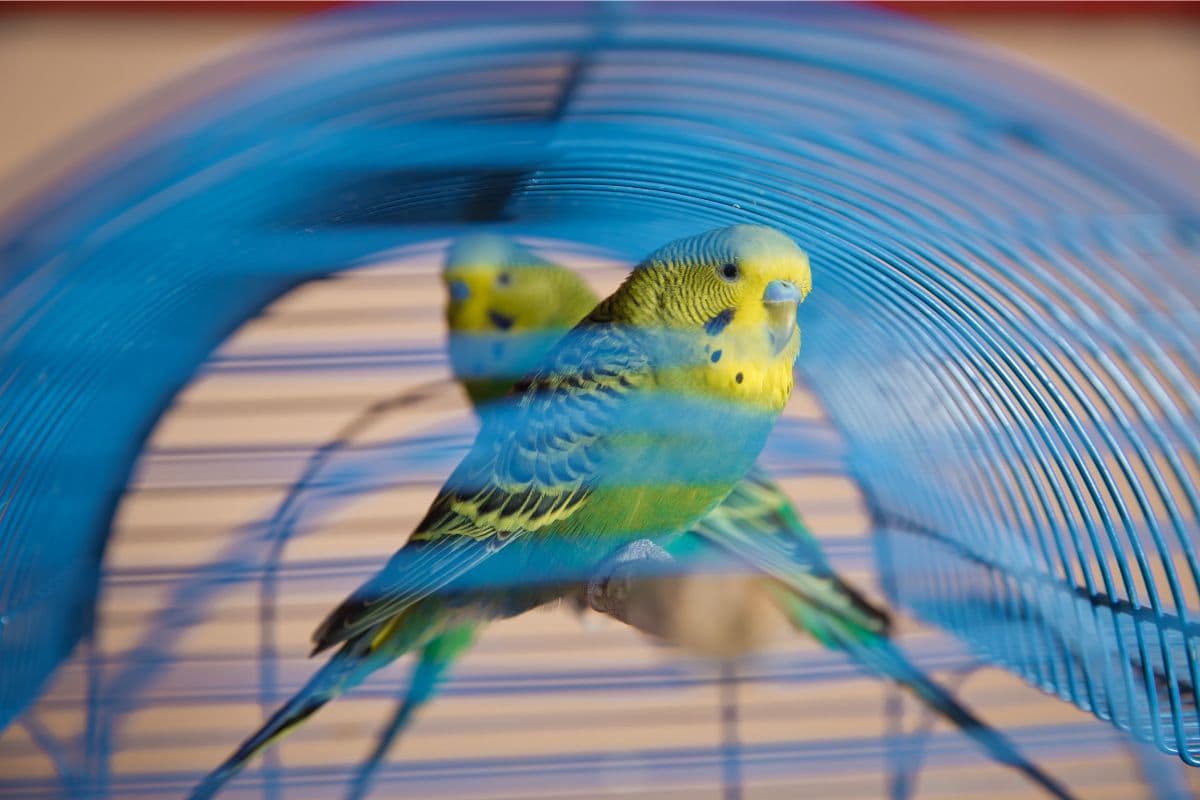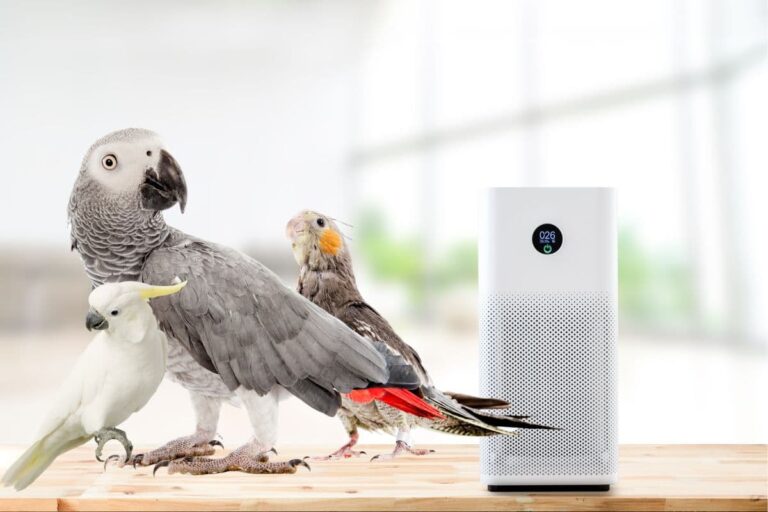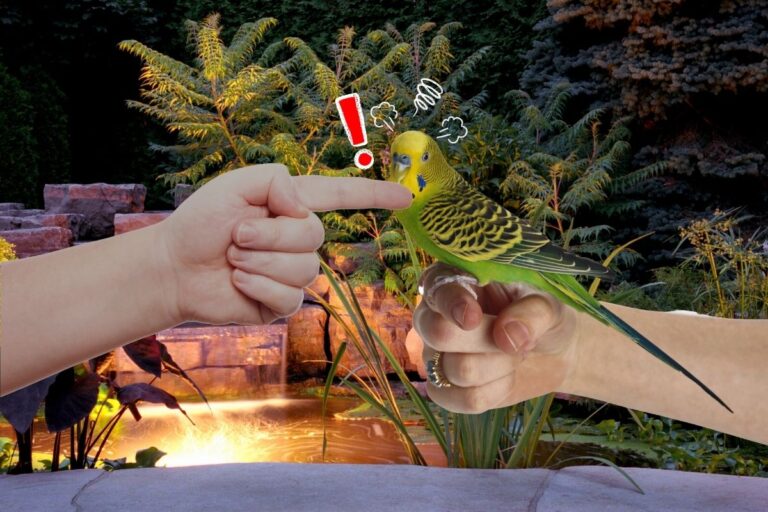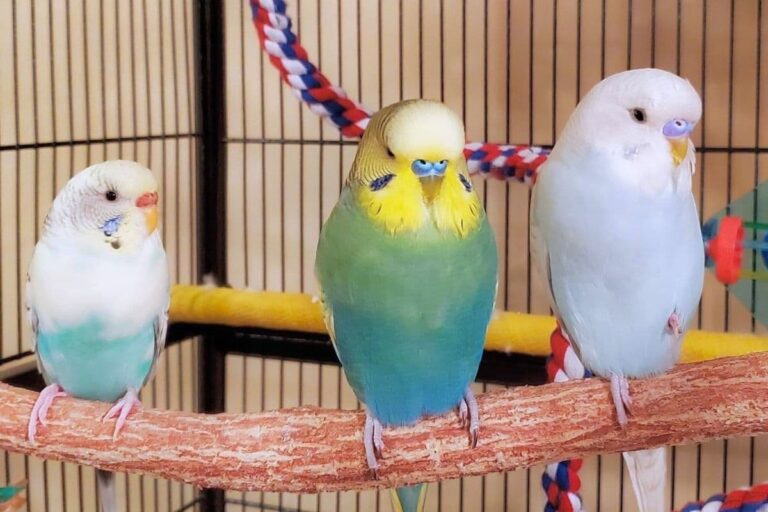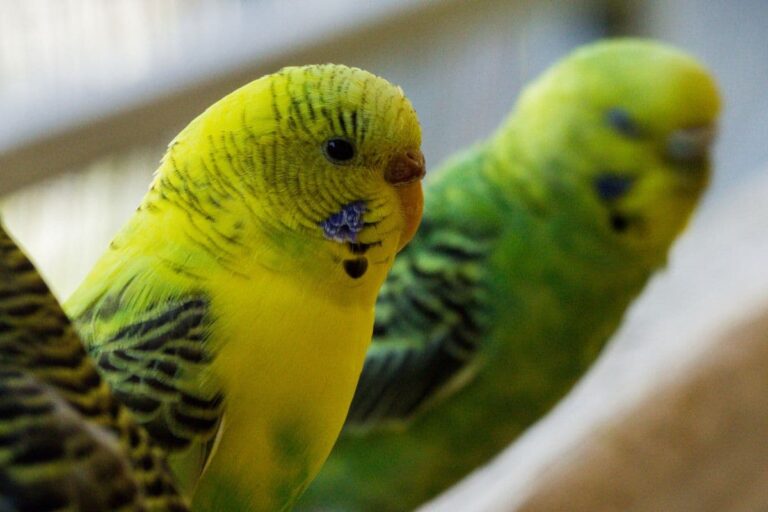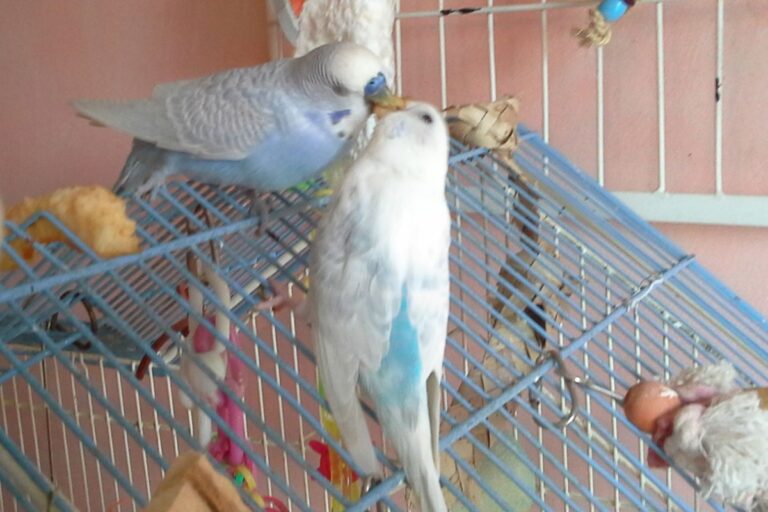Is It Cruel to Keep a Parakeet in a Cage
Disclosure: The opinions expressed in this post are my own. This post may also contain affiliate links, which means that I will receive a commission if you decide to purchase through my links, at no additional cost to you. As an Amazon Associate, I earn from qualifying purchases.
If you’re considering keeping a parakeet as a pet, you might be wondering if it’s cruel to keep them in a cage. After all, they’re such cheerful little birds that seem to love flying around.
While some people argue that keeping a parakeet in a cage is necessary for their safety and well-being, others believe that it’s inhumane to confine a pet bird to such a small space. In this article, we’ll explore the different perspectives on this controversial topic and try to come to a conclusion.
Is It Cruel to Keep a Parakeets in Cages?
The question of whether it is cruel to keep a parakeet in a cage is a controversial one, with opinions on both sides. However, there are several factors to consider when answering this question.
Firstly, it is clear, without a doubt, that the confinement of a parakeet in a cage without the appropriate space, socialization, and environmental stimulation can be deemed as cruel and inhumane.
However, it can not necessarily be cruel to keep a parakeet in a cage, as long as you provide them with the proper care and environment. Make sure to provide them with companionship, a large cage, and a stimulating environment to keep them happy and healthy.
By asking ourselves the following questions, we can see this in a clearer picture, and kind of imagine ourselves in their shoes.
1. Are They Able to Socialize?
Parakeets are social creatures that thrive in flocks and need companionship to be happy. If you are considering getting a parakeet, it is recommended that you get at least two, so they can keep each other company.
2. Do They Have the Right-Sized Cage?
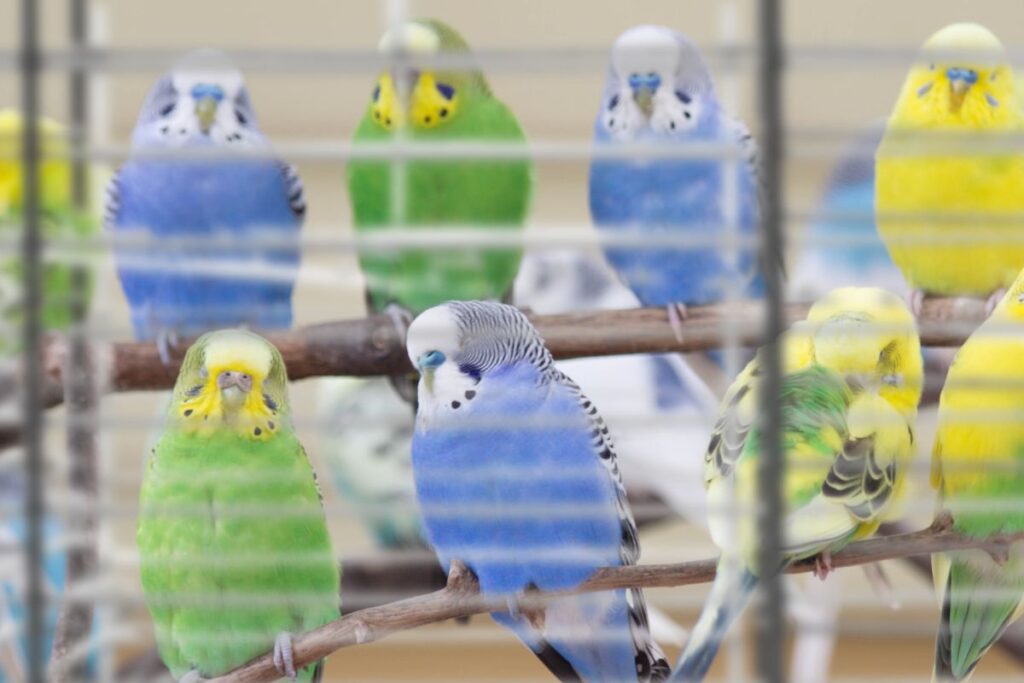
The size of the cage is also a crucial factor. A cage that is too small can be detrimental to a parakeet’s physical and mental health. The cage should be large enough for the birds to move around freely, stretch their wings, and have access to toys and perches.
3. Is Their Cage Providing Them With Enough Mental Stimulation?
It is also important to provide your parakeet with a stimulating environment. Parakeets are intelligent creatures that need mental stimulation to be happy and healthy. Provide them with toys, perches, and other accessories to keep them occupied.
4. Are They Captive-Bred from Pet Stores?
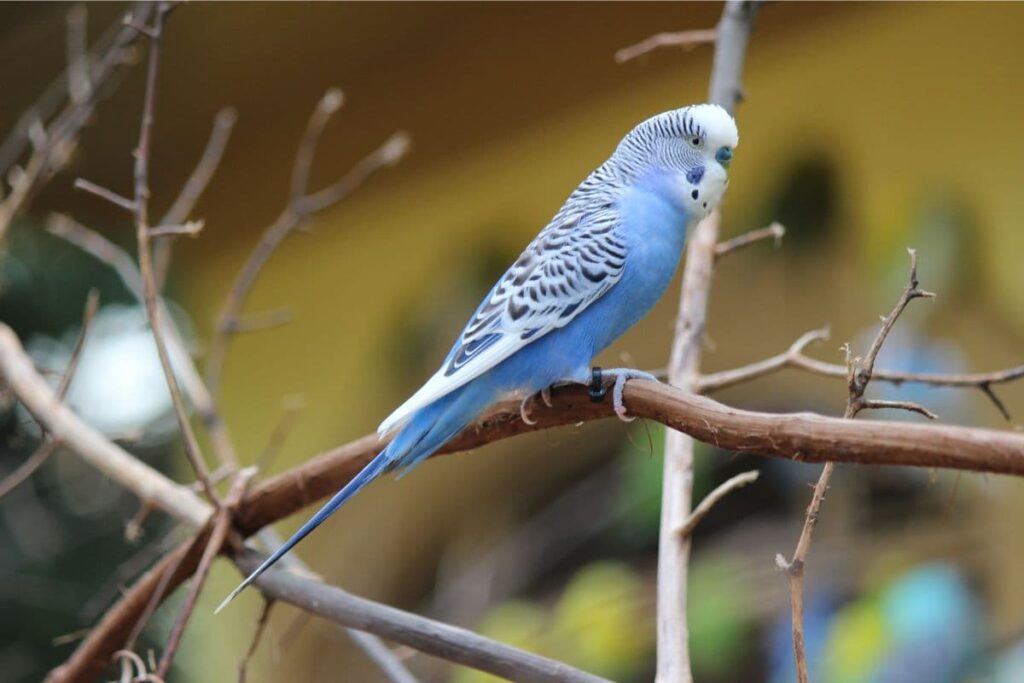
When considering whether it is cruel to keep a parakeet in a cage, it’s important to consider where the bird came from. If the parakeet is captive-bred from a pet store, it should have been raised in captivity and is more accustomed to living in a cage. On the other hand, parakeets that have been caught from the wild , may not be used to being confined in a cage and could be much more prone to stress of confinement.
Reasons Why It Could Be Considered Cruel to Keep Parakeets in Cages
We’ll take a look at both sides of the argument whether is it cruel or not to keep parakeets in cages, starting of with the former.
There are a few key reasons why it is cruel to keep a bird in a cage. First, birds are meant to fly, and being confined to a small cage prevents them from doing so. Second, birds are social creatures, and being kept in a cage away from other birds prevents them from socializing properly. Third, birds need to be able to forage for food and build nests, and being in a cage prevents them from doing so. Lastly, wild birds are exposed to a variety of stimulations that help them stay healthy both mentally and physically, and being in a cage prevents them from experiencing these things.
Parakeets May Get Stressed or Depressed
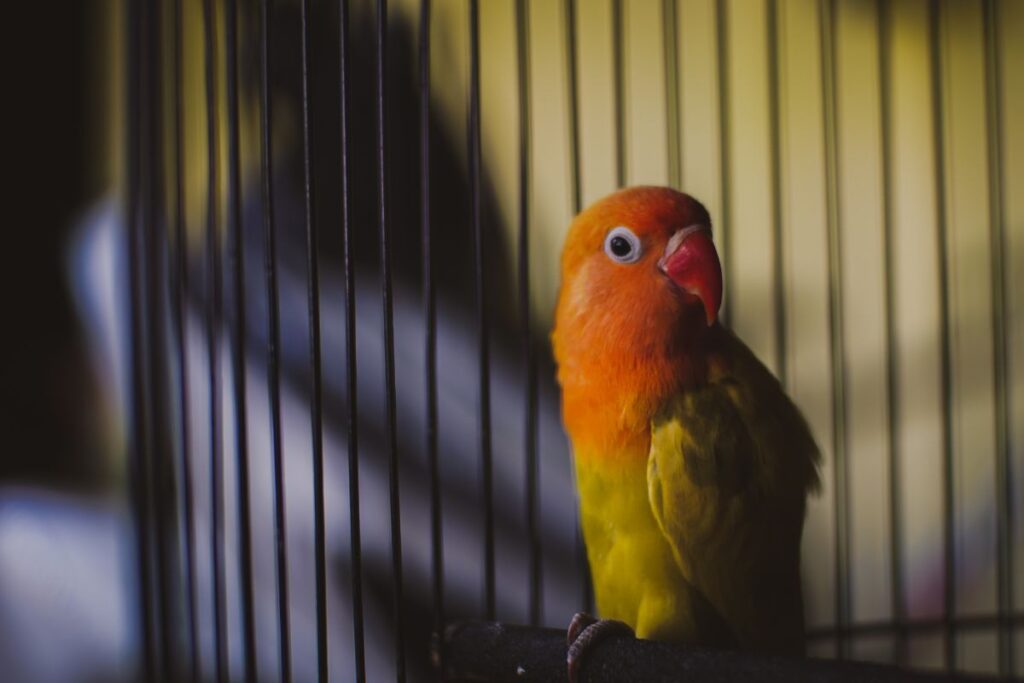
One of the biggest concerns for those who are against keeping parakeets in cages is the potential for stress and depression in these captive birds. Parakeets are social creatures that thrive in flocks, and they need plenty of stimulation and environmental enrichment to stay happy and healthy. In captivity, however, they may become bored, anxious, or even depressed if they don’t have enough to do.
One of the main causes of stress in captive parakeets is lack of space. Pet birds that are kept in small cages or confined spaces may feel trapped or claustrophobic, which can lead to a range of negative behaviors, such as mood swings, feather-plucking, aggression, or self-harm. Similarly, if a parakeet’s cage is not properly equipped with toys, perches, and other forms of stimulation, it may become bored or frustrated, which can also contribute to stress and depression.
Another factor that can impact a parakeet’s mental health is isolation. Since parakeets are social animals, they need regular interaction with other birds or with their human caregivers to stay happy and engaged. If a parakeet is left alone for long periods of time, it may become lonely or withdrawn, which can lead to depression and other health issues.
Overall, while it is possible to keep a parakeet in a cage without causing undue harm, it is important to take steps to ensure that the bird’s physical and emotional needs are being met. This includes providing plenty of space, stimulation, and socialization, as well as monitoring the bird’s behavior and health for signs of stress or depression.
Parakeets May Not Have the Opportunity to Fly

One argument against keeping parakeets in cages is that they may not have the opportunity to fly. In the wild, parakeets fly for miles each day, engaging in social interactions and foraging for food. In captivity, however, they may only have a small cage to fly in, if any space at all. This lack of exercise can lead to obesity, muscle atrophy, and other health problems.
However, it’s important to note that not all parakeets are kept in small cages. Many owners provide spacious aviaries or allow their captive birds to fly around their homes. Additionally, parakeets can still engage in physical activity even if they are in a cage. Owners can provide toys, perches, and other forms of enrichment to encourage movement and exercise.
Ultimately, the decision to keep a parakeet in a cage should be made with the bird’s welfare in mind. If the owner is able to provide a safe and stimulating environment, then keeping a parakeet in a cage may not be cruel. However, if the pet bird is confined to a small space with no opportunity for exercise or socialization, then it may be best to reconsider pet ownership.
May Limit the Parakeets’ Ability to Forage and Engage in Natural Behaviors
Another argument against keeping a parakeet in a cage is that it may limit their ability to forage and engage in natural behaviors. In the wild, parakeets spend a lot of their time foraging for food and engaging in social behaviors with other birds. By keeping them in a cage, they may not have the opportunity to engage in these natural behaviors.
However, this argument can be addressed by providing the parakeet with toys, perches, and food puzzles. These items can simulate the parakeet’s natural environment and provide them with the opportunity to engage in foraging behaviors. Additionally, spending time with your parakeet outside of the cage can also help them engage in social behaviors.
It is important to note that keeping a parakeet in a cage does not necessarily mean that they are being mistreated or neglected. As long as the cage is appropriately sized, clean, and contains the necessary items for the parakeet’s well-being, it can be a safe and comfortable environment for them. It is important to research and understand the needs of a parakeet before making the decision to keep one as a pet.
Keeping Them in Cages May Result in Behavioral Issues
Keeping parakeets in cages for extended periods of time may result in behavioral issues. This is because parakeets are social creatures that thrive on interaction with their flock.
When kept in isolation, parakeets may develop aggressive or self-destructive behaviors. They may also become lethargic or depressed.
Parakeets require enrichment activities to keep them stimulated and engaged. Without these activities, they may resort to destructive behaviors such as feather plucking or biting.
To prevent behavioral issues, it’s important to provide your parakeet with a stimulating environment. This can include toys, perches, and regular social interaction.
If you are unable to provide your parakeet with the necessary stimulation and socialization, it may be best to reconsider keeping them as a pet.
Benefits of Keeping Parakeets in Cages
While some may argue that keeping a parakeet in a cage is cruel, there are actually many benefits to providing a safe and comfortable living space for your feathered friend. Here are just a few reasons why keeping a parakeet in a cage can be a good thing.
It Offers a Sense of Security Letting Them Be More Relaxed
One benefit is the sense of security that a cage can offer, which can actually help the bird to be more relaxed and comfortable in its environment.
In the wild, parakeets are constantly on the lookout for wild animals, predators and other dangers. This can create a state of constant stress and anxiety, which can have negative effects on the bird’s health and well-being. By providing a safe and secure cage, however, the bird can relax and feel more at ease in its surroundings.
Moreover, a cage can provide a place for the bird to retreat to when it feels threatened or overwhelmed. This can be especially important in a household with other pets or young children, where the bird may feel vulnerable or exposed. With a cage to retreat to, the bird can feel more in control of its environment and less stressed overall.
Protects Them from Predators

One argument in favor of keeping a parakeet in a cage is that it can protect them from predators. In the wild, parakeets are often preyed upon by larger birds, snakes, and other predators. By keeping them in a cage, you can ensure their safety and protect them from harm.
In addition, a cage can provide a safe and secure environment for your parakeet to live in. It can protect them from other household pets, such as cats and dogs, who may view them as prey. A cage can also prevent them from getting into dangerous situations, such as flying into a window or getting stuck in a small space.
Having Control Over Their Diet and Nutritional Intake
Keeping a parakeet in a cage allows you to have control over their diet and nutritional intake. In the wild, parakeets have to forage for their food, which can lead to malnutrition or even starvation if they can’t find enough food. However, when kept in a cage, you can provide your parakeet with a balanced and nutritious diet that meets all their nutritional needs.
By having control over your parakeet’s diet and nutritional intake, you can help them live a long and healthy life. This is especially important for pet parakeets, who may not have access to the same variety of foods as their wild counterparts. So while keeping a parakeet in a cage may be controversial, providing them with a nutritious diet is one way to ensure their well-being.
Easy to Monitor Their Health
One of the benefits of keeping a parakeet in a cage is that it’s easy to monitor their health. When a bird is in a cage, you can keep a close eye on their behavior, eating habits, and excretions. This means that if your parakeet is showing signs of illness, you can quickly take action and get them the care they need.
In addition, keeping a parakeet in a cage allows you to control their environment. You can make sure that they have access to clean water and food, and that their cage is kept clean and free of any potential hazards. This can help prevent illnesses and injuries that can be caused by exposure to harmful substances or objects.
Furthermore, when you keep a parakeet in a cage, you can limit their exposure to other animals or outdoor elements that may be harmful to their health. This means that you can protect them from predators, diseases, and other potential dangers.
Plenty of Opportunities to Bond and Build a Relationship with Them
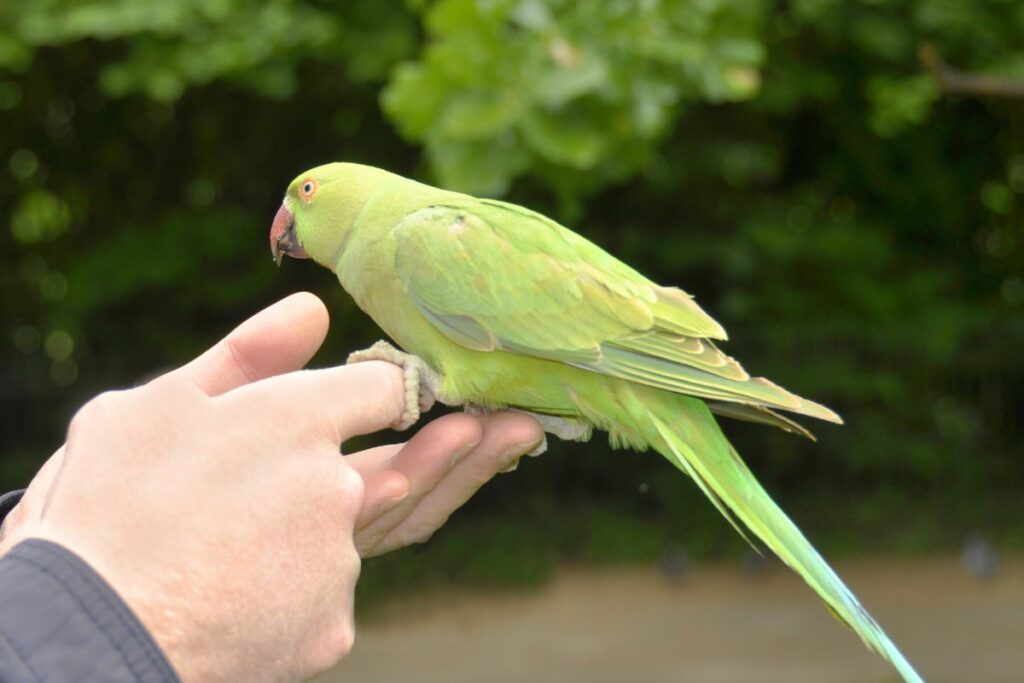
One way to bond and improve the quality of life with your parakeet is through regular interaction and playtime. Having them always around allows you to spend time talking to them, offer treats, and play games with them while they are in their cage. You can also provide them with toys and activities to keep them entertained and mentally stimulated.
It is also important to remember that parakeets are social birds and thrive on interaction with other birds. Consider getting a second parakeet to keep your bird company and provide them with a social outlet.
Ways to Improve the Quality of Life for a Parakeet in Captivity
Here are some ways you can improve the quality of life for your parakeet in captivity.
Provide Ample Space
When it comes to keeping a parakeet in a cage, providing ample space is crucial. While it may seem cruel to keep a bird confined in a cage, providing enough room for them to stretch their wings and move around can make a big difference in their well-being.
The size of the cage should be appropriate for the size of the bird. However, bigger is always better when it comes to cages for parakeets. Providing enough space for your bird to fly around, play with toys, and perch comfortably is essential for their mental and physical health.
Keep the Cage Clean
A dirty cage can lead to health problems for your pet, including respiratory issues and infections. It can also create an unpleasant living environment for your parakeet.
To keep the cage clean, you should clean it regularly. This includes removing any uneaten food, droppings, and feathers. You should also replace the bedding or lining of the cage on a regular basis. This will help to keep the cage smelling fresh and clean.
Give Them Plenty of Out-of-Cage Time
It’s also important to provide your parakeet with plenty of out-of-cage time to stretch their wings and explore their surroundings. This can be done by setting up a play area or a bird-safe room for them to fly around in.
Giving your captive birds plenty of opportunities to exercise and play can help prevent boredom and behavioral issues that may arise from being confined to a small space.
Offer a Variety of Toys
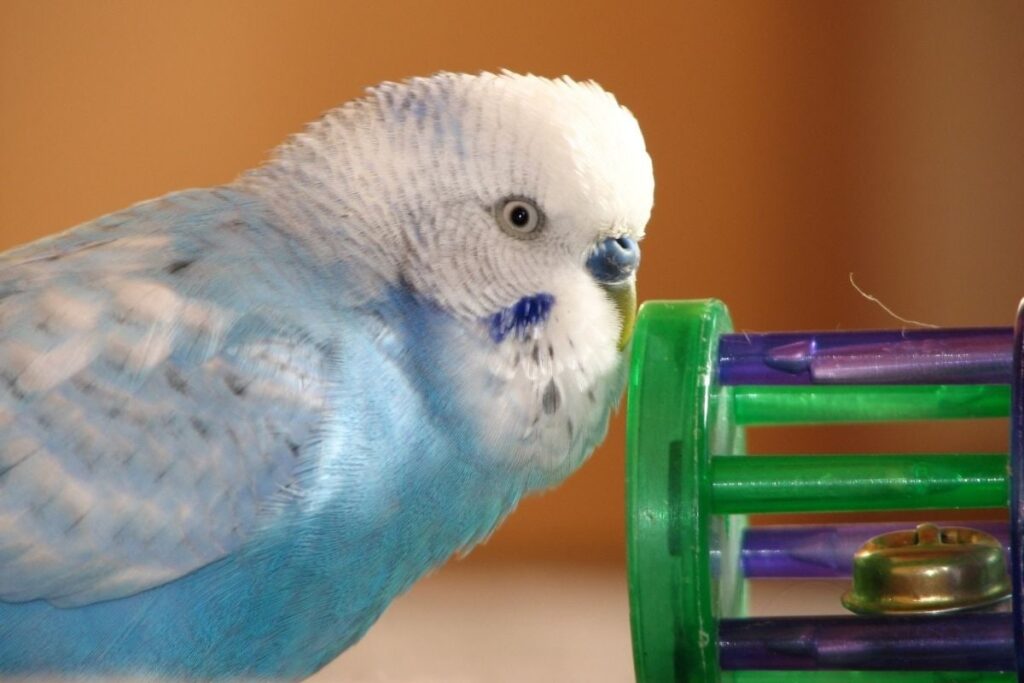
Parakeets are intelligent birds that love to play and explore. Provide your bird with a variety of toys, such as mirrors, bells, and swings, to keep it mentally stimulated.
Remember to rotate your parakeet’s toys regularly to keep them interested and engaged. Offering new toys or rotating existing ones will prevent boredom and help to keep your bird mentally stimulated.
Create a Natural Environment
Parakeets are used to living in a natural environment, so try to recreate that in their cage. Add natural perches, such as branches, and include plants or flowers to create a more natural setting.
This will not only provide a more natural habitat for your parakeet, but it will also help to improve the air quality and reduce stress levels.
Provide Them a Healthy Diet
A healthy diet for a parakeet includes a variety of fresh fruits and vegetables, as well as small amounts of seeds and pellets. You can also offer cooked grains, such as quinoa or brown rice, as a source of carbohydrates.
It’s important to avoid feeding your parakeet foods that are toxic or harmful to their health, such as avocado, chocolate, and caffeine. Additionally, be mindful of the portion sizes and frequency of feeding to prevent obesity and other health issues.
Spend Time With Your Bird
Parakeets are social creatures that crave attention and interaction. Spend time with your bird every day, talking to it, playing with it, and offering treats as a way to bond and build trust.
By interacting with your captive bird on a frequent basis, you can build a strong bond with your pet and provide it with the attention it needs to thrive.
By following these tips, you can help ensure that your parakeet lives a happy, healthy life in captivity.
Final Words
The question of whether it is cruel to keep a parakeet in a cage is a complex one with no easy answers. While it is true that parakeets are social animals that thrive on interaction and stimulation, it is also true that they can adapt to living in a cage under the right conditions.
Ultimately, the key to providing a happy and healthy life for your parakeet is to ensure that their cage is spacious, well-equipped with plenty of toys and perches, and that they receive regular exercise and socialization outside of their cage.
Additionally, it is important to educate yourself on the specific needs and behaviors of parakeets as a bird species, so that you can provide them with the best possible care. With the right approach, it is possible to keep a parakeet in a cage without causing them undue harm or stress.



